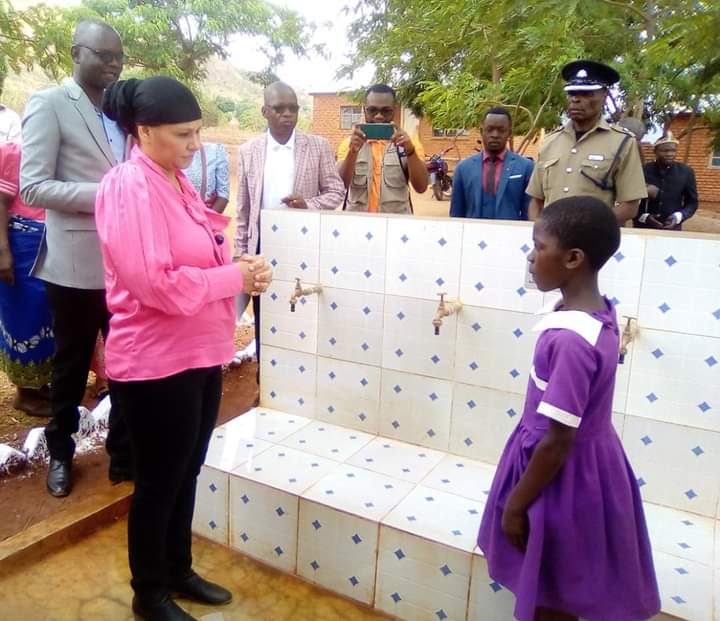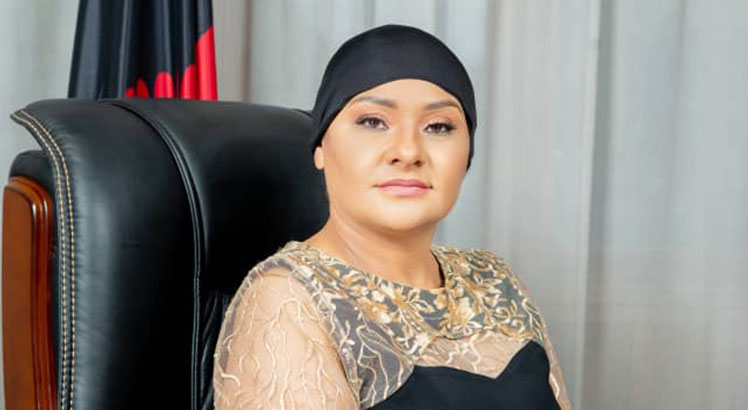

LILONGWE-(MaraviPost)-Ministry of Water and Sanitation this week suspended implementation of a water tariff hike the country’s five water boards requested due to high operational and production costs, fearing such a decision would worsen the current cholera situation.
Minister of Water and Sanitation Abida Sidik Mia told the Nation Newspaper that although the water boards are stressed and need the tariff hike, an increase in the price of water will only be considered in March or April next year when the cholera situation eases.
“Everything has gone up, including chemicals, operational costs, wages and salaries. However, we cannot raise the tariff now because of the cholera outbreak.
“Although the water boards need the tariff hike and we are looking into how we can do that, it will have to be next year, maybe March or April”, said Mia.

Parliamentary Committee on Natural Resources chairperson Welani Chilenga said that the tariffs may go up by an average of 35 percent.
Chilenga said his committee was planning to meet the five water boards on January 14 2023 on the way forward on the matter.
Besides huge unpaid water bills by ministries, department and agencies (MDAs) that hovered around MK23 billion early this year, water boards also lose MK30 billion annually to non-revenue water, have huge electricity bills and face increasing cost of production.
Water Users Association of Malawi executive secretary Shadreck Kalitera complained that utility providers continue to operate under dire stress.
He said: “The current tariff is below full cost recovery. And worse still, the water boards are heavily owed by the MDAs.
“There is a need for cost recovery tariffs. This will enable water boards to meet the operation and maintenance costs, service debt and renew its assets.”
Kalitera, whose association is an umbrella body of the water boards, called for the sector to be independently regulated because there is no independent water regulator in Malawi to set and effect tariffs.
On the other hand, Chilenga expressed fear that Blantyre Water Board (BWB), which has an electricity bill estimated at MK21 billion, and Central Region Water Board (CRWB) may soon collapse if nothing is done.
“If this continues, BWB will shut down and you know what that means. CRWB is also a disaster. If you go to Mchinji, Salima, Kasungu, it is failing to provide water. We note their concerns that tariff increase is important to make them sustainable.
“We are meeting all water boards on 14th January to finalise the tariff hike issue. They effected 45 percent last year, and now we will have an average of 35 percent, then 15 percent because they remain with an average of 55 percent for the next two years,” Chilenga added.
Parliament’s Public Accounts Committee (PAC) chairperson Mark Botomani said water boards do not have robust strategic policy guidelines on revenue collection.
During a recent appearance before PAC, Northern Region Water Board management disclosed that MDAs owe the utility provider MK2.9 billion,
Consumers Association of Malawi executive director John Kapito said water boards need to deal with many shortfalls in their systems like non-revenue water and collection of revenue they are owed by MDAs before thinking of raising tariffs which hurt the poor.
Mia has since said they are working on helping water boards recover the debts from MDAs.
“We have discussed with MDAs on debts and they are looking at a solution in the first week of January 2023, they will start paying up.
“For the last two weeks, we have been talking to them and have promised to start paying. We discussed with the Treasury, to see how they can settle their debts,” she said.
This comes as Ministry of Health disclosed that Cholera has killed 557 with 16,984 cases as of December 30, 2022.
With case fatality rate at 3.28%, a total of 15,586 people have recovered and 841are currently in the treatments centres